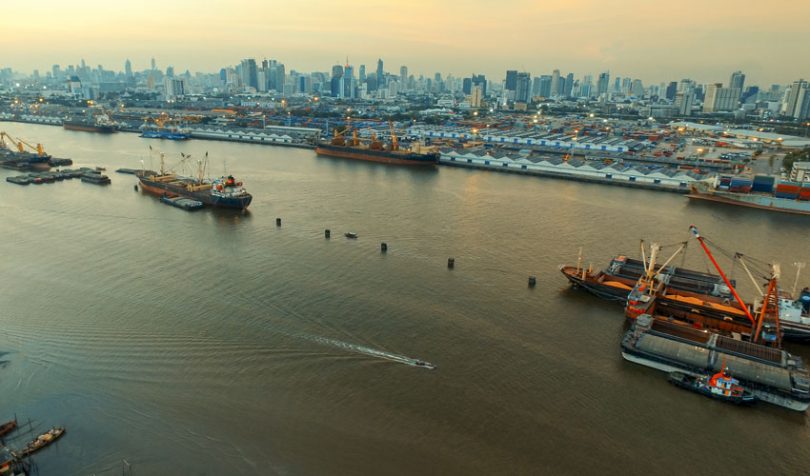Yesterday it was reported that the Thailand Customs Department is to adopt TradeLens, the logistics focused blockchain platform of IBM and Maersk.
Thailand is the second nation in south-east Asia, after Singapore, to use the system. TradeLens has so far welcomed many high profile firms due to the efficiency and transparency it provides. With blockchain, the platform turns waiting times for shipping documentation from days to minutes.
Yesterday’s report claims that around 200 documents are exchanged and 300 people are involved in every shipment. The delay in conventional systems is mostly because of paper-based documentation, such as bills of lading, and the need for verifiable trust between parties. TradeLens eliminates both of these requirements with blockchain technology.
Patama Chantaruck, the Managing Director of IBM Thailand, stated: “TradeLens will provide the Thai Customs Department with an automatic and immutable tracking tool, which will lead to a more secure, transparent, efficient and simpler workflow, with near real-time information sharing from a diverse network of ecosystem members.”
She added that customs authorities would begin to receive shipping data as soon as containers leave for Thailand. Officials will have ample time to prepare documentation and an immutable log of where the ship has been, allowing for easy auditing and fraud detection.
Thai Customs have been working with IBM on implementing TradeLens since October, as Chuchai Udompote said on Wednesday. He is the principal advisor for the Customs Incentive System, a Thai initiative, and added that the platform will first roll out at Laem Chabang port, with plans to add Bangkok port.
TradeLens will “create greater transparency and customer satisfaction and align with the country’s efforts to promote trading and economic stability by facilitating ease of doing business,” Chuchai stated.
Customs departments worldwide are seeing the benefit of blockchain. In June, China rolled out its own cross border trade system with PowerBridge. TradeLens is already being used by the customs agencies of the US, Canada, and the Netherlands, with Saudi Arabia completing a customs pilot on the platform earlier this year. Further, five of the top six shipping carriers are members of the IBM/Maersk initiative.






